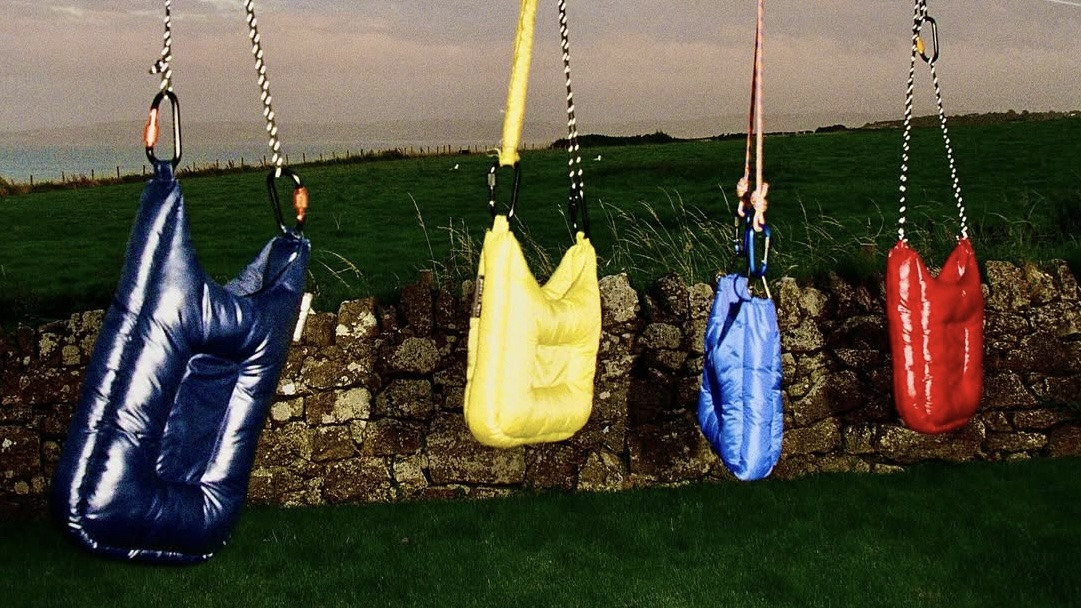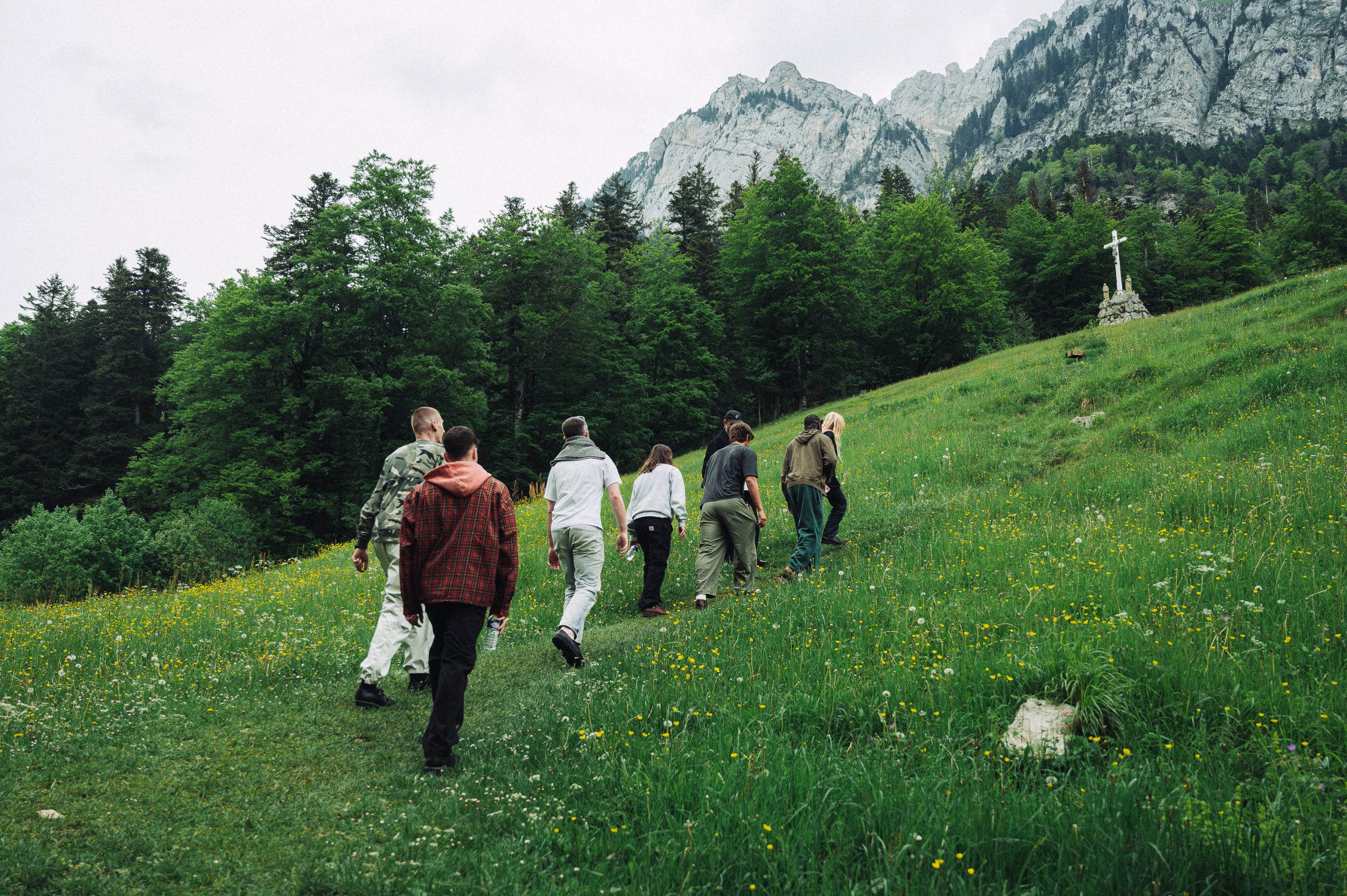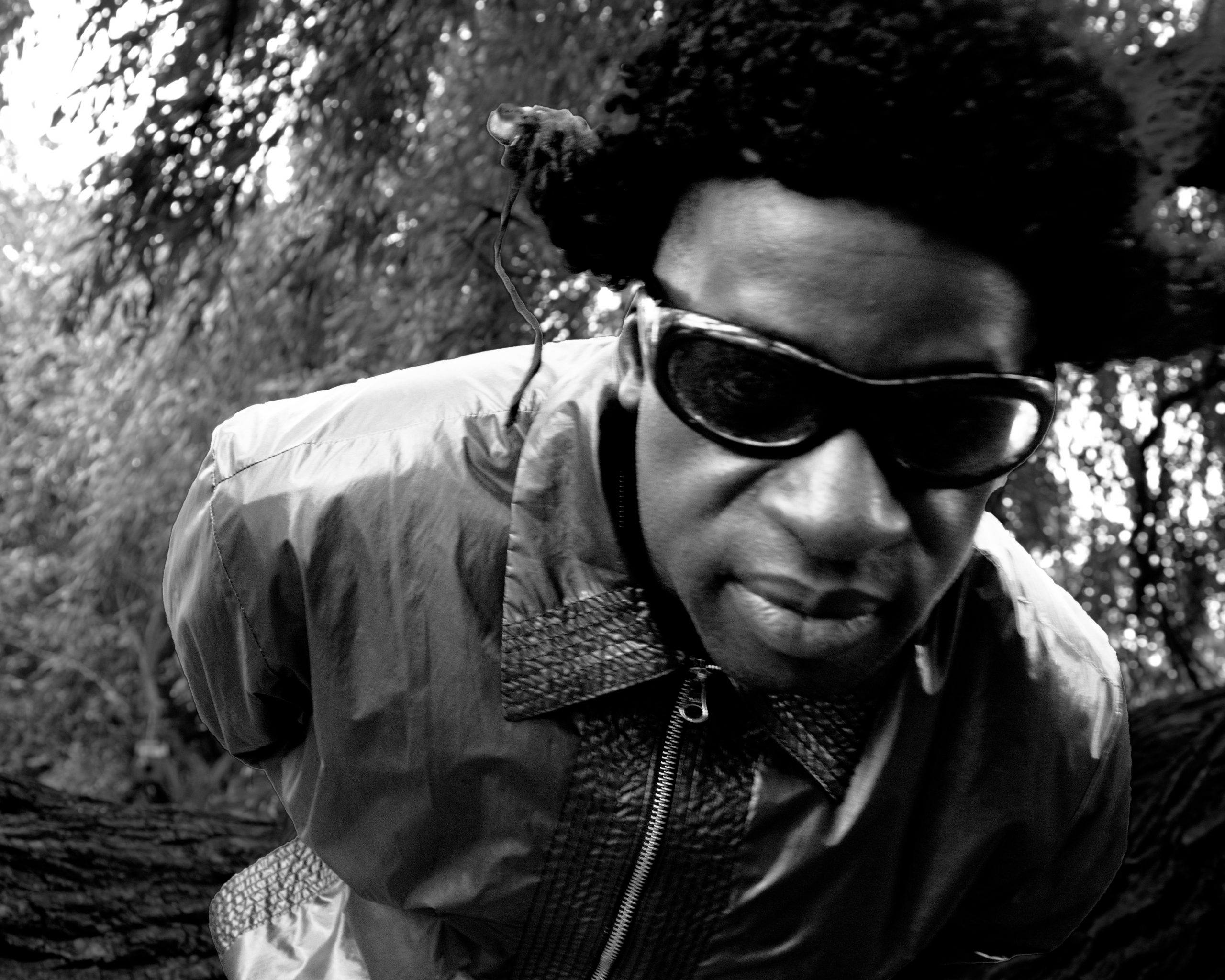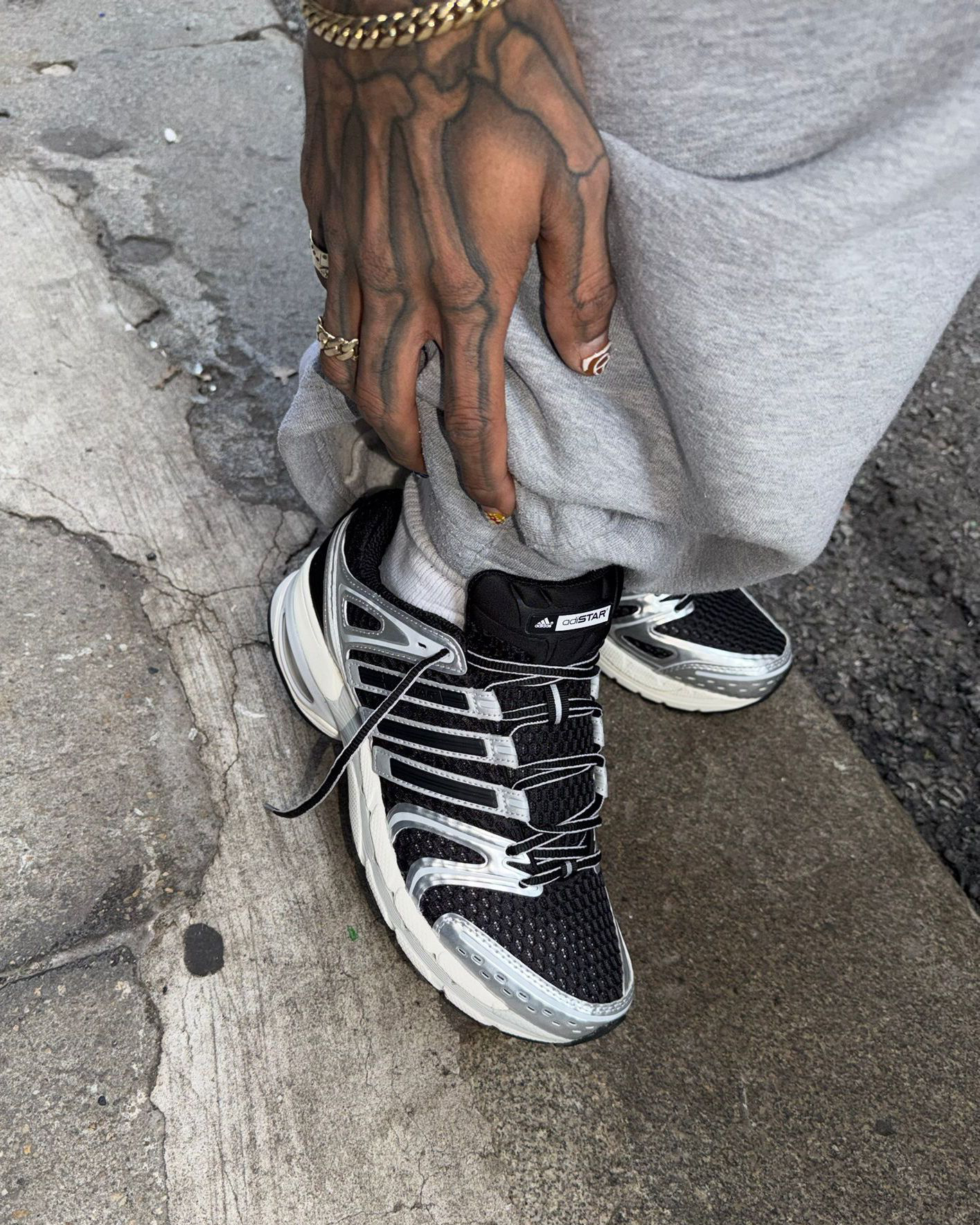Perhaps unsurprisingly, Saba is pretty hard to pin down these days. After a few postponements due to tour commitments, and a small bout of Covid, we sit down with the Chicago-born, now-LA-based rapper and producer.
When I get on a call with Saba, he’s just burned some rice and doesn’t have too many plans for the day. Fair enough. Hot off the heels from a 25- date / six-week voyage across the US & Canada – aptly named Back Home – he is well-deserving of a rest. “It was a once in a lifetime experience… I’ll probably keep saying that,” he confesses. Again, fair enough. After a long time off the circuit thanks to lockdown and restrictions, he is thrilled to be imminently returning to adoring audiences across the pond, “to be received and embraced like that, so many miles away from home. And it still feels like home you know? Any time I go to Europe it just feels different.” He can’t wait to touch a European stage once more. “It’s honestly a feeling I miss,” he explains, “I really miss the people over there, the interactions, the shows. It’s very very different, like drastically different. Knowing that, we’re blessed to experience that and go play music. It’s another thing the pandemic fucked up, I missed the hell outta Europe.”
The UK/EU leg begins in September, but this ‘gap’ from road life is hardly a pause. Saba is a very very busy dude. He released his 3rd solo album, the critically acclaimed LP Few Good Things earlier this year, alongside an accompanying 25 minute short film. He’s also been cooking up in the studio with his Pivot Gang family, and recently confirmed the upcoming/long awaited new Ghetto Sage project (a holy trinity with Smino & Noname, who he lovingly treasures as his two favourite people to work with.) Both the Pivot and Ghetto Sage projects will drop…”pretty much whenever…”, he explains with a smile. These are his best friends / blood. When it’s ready, it’s ready.
This ad-hoc attitude has spilled over into his tour, which has been unique from any of his previous runs. It’s the first time he’s had time to record on the road, and had his engineer out with him for the duration. Saba feels well accustomed to tour life, supported by a squad he refers to as “Swiss Army knives” that “wear all hats,” his DJ doubling as lighting engineer and tour manager “running sound” for a few nights. “Everyone’s working like the fucking headliner. So yeah it takes the pressure off, and you wanna do a good job because you know how hard everyone around you is working,” he enthuses. The love and depth of commitment from the crew is evident from the BTS miniseries; his security beams, revealing to the camera a massive ‘PIVOT’ tattoo across his forearm. The vibrations are strong; Saba’s joy in returning to the stage is exemplified in his electric performances, and how invigorated he feels after so long being unable to perform live. The “upscaled sweaty basements” of North Carolina and the crowds of Austin, Texas were stand-out stops, where he “felt like the reception was very different – people saw me how I saw me. I think every artist should experience a version of that, ‘cos it can drive you; you have a reason to go back to the studio, a feeling you’re almost chasing, kind of like a high.”
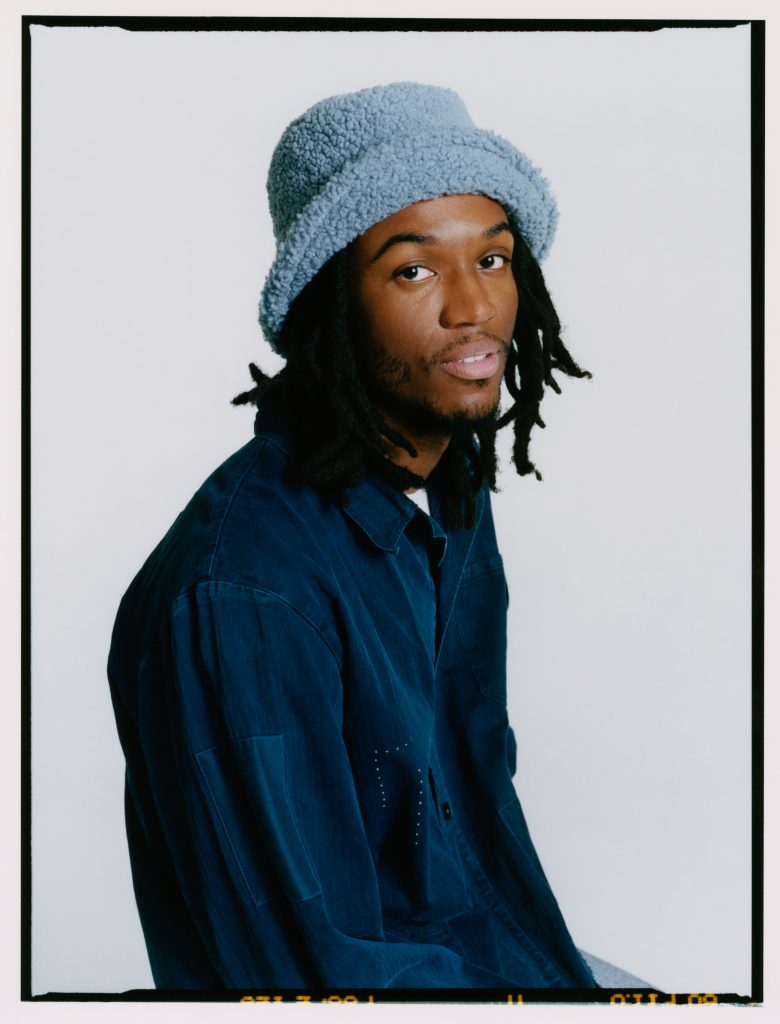

The “few good things” he selects as tour staples are a pair of basketball trainers for on-court antics, a 20lb weighted blanket to replicate a human hug (his words), and his trusty MPC for production. “I made a lot of music just for me,” he reflects of his lockdown experience, but, like many, this period was filled with confusion and contradiction. Many hours were spent watching WWE wrestling videos with his brother Joseph Chilliams (of Pivot), reconnecting with himself through elementary pleasures and pastimes. “It was a blessing in disguise for me; I went back into my own head,” he reflects, taking the time to cool down the pace and place intention on his influences after a protracted period of overwhelm and uncertainty. He became “unsure in a lot of ways” about himself, and tapped into his inner child: “spending so much time with myself kind of got me back to feeling like I was me when I was 16 or something”.
It wasn’t always wrestling and video games, though. The artist describes the “nuanced and conflicting relationship” of making music professionally, “feeling like I didn’t really have a purpose. Like, I’ve spent my life doing one thing and I wasn’t really able to do that for multiple years, so it was really mentally tough for me.” He felt his livelihood — and the only life he’s ever known — were stripped away from him. He subsequently recalls anecdotes of his college days as an engineer, “‘random-ass 36 year olds off the street” paying him 13 bucks for a song half-recorded, some ‘artists’ not even offering 13 measly bucks and driving off with demos unannounced. While we don’t know what happened to these early recordings or what became of these getaway rappers, collaboration has always been central to Saba’s vision and output. He has a long list of recurrent link ups outside of his Pivot stable – Chicago’s finest Chance The Rapper, Smino and Noname, Detroit artist Eryn Allen Kane, the Dreamville family to name but a few. He’s also caught the attention and admiration from heavyweights, namely The Roots’ Black Thought and Krayzie Bone (of Bone Thugs-n-Harmony).
Black Thought blesses the closing/titular track Few Good Things – a collab spurred on Saba by Smino’s hook in ‘Haagen Dazs’ by Ghetto Sage – “I get the bands like The Roots / Black out all my thoughts, request the love, revenge the youth’.” Saba describes him as “such a kind, talented person”, and a genuine “ghetto sage” figure. During the recording session at Saba’s house, Black Thought “just chopped it up with us, and just gave us a lot of game and wisdom. I think that those relationships between OGs and younger artists are just so valuable – it was so nice to have someone so talented, someone regarded as one of the greatest rappers ever by so many people. Its really nice to have someone rooting for you and in your corner, and who wants to see you win you know? And willing to help you get there.”


A lot of people want to see Saba win. His short film, which the album soundtracks, was directed by CT Roberts, but it was “really a collaborative process – so many people worked on that film under their budgets, a lot of people wanted to make it happen. It was really a community effort, loads of people that were in Chicago working in film gave up a little bit to work on a project like that. I’m just super grateful that people wanted to be a part of it in the first place.” The short was in-part inspired by Khalil Joseph’s 2011 visual interpretation of Shabazz Palaces’ ‘Black Up’. Clear parallels can be drawn between the two, particularly the juxtaposition of the lush greenery against the decay and grey concrete cityscapes of Chicago in Few Good Things, and New York in ‘Black Up’. This was a key focus to the film, initiated during a year-long conversation with Roberts in the lead up to its creation. He shuns tired mainstream and media depictions of Chicago, where “you either see O-Block or the fucking Sears Tower,” and laments that the “small, silly” notion that nature existing in his city is oft forgotten.
“Through everything we’ve experienced in Chicago, it’s still my favourite place,” he states. “I still have the time of my life when I go back, it’s such a beautiful place. Even through all of the hurt, all of the grief, inner city traumas… it’s like…we still have trees!” he chuckles. “It’s just funny to me; overlooking simple things is so dehumanising, and I think Chicago is a place that has been dehumanised for so long in the media. That’s part of why I don’t watch anything about the city…you can’t tell me nothin’!”
He continues, “I think I wanted to do what I could, and will continue to as I evolve and grow throughout my career. I want to humanise some ‘hood shit. I feel like people see it as so ‘inevitable’ that they remove themselves from even seeing us as people, like ‘that’s Chicago…so this is what happens there…we’ll never go there’. I dunno, it’s like, people are humans, and humans reply to certain conditions. When I think of Chicago and the depiction of Chicago, I think it’s only human nature.”



Saba explores a “tale of two Chicagos” in the film. Through stunning cinematography and rich archival footage, he pivots between a Chicago of extraction/exploitation and gentrification/ghettoisation, and a metropolis built on enduring love, strength, resilience and comunity. Running deep through the film is a family thread based around his grandmother’s home that extraordinarily — by Black Chicagoan standards — stayed in the family for more than 40 years.
Legends of the Chi are aplenty as we discuss the top 5 spitters from the city. He selects “in NO particular order, cos yesterday or tomorrow it might be different,’’ an objectively revered list of “Kanye, Keef, Lupe, Twista and Common” and shoutouts out codies Chance, Noname and Mick Jenkins. Saba likes to keep his musical consumption controlled, especially during the recording process. He describes this discipline as “really challenging. It’s so easy to be influenced and then the worst thing is not remembering. Like when you think of something profound and you’re like ‘Damn, is this thing mine? Or does this belong to something I’ve just heard?”. Despite this, two artists he must stay plugged into are Future (“I just have to stop what I’m doing and check out whatever’s going on over there”) and Kanye (“when he releases something I should at least know what it sounds like.”)
‘Godfather of Chicago Hip-Hop’ and frequent Ye producer No I.D gifted Saba a 120-beat-bumper-pack to work his magic with. At last count he’d recorded over 14 tracks, but has now climbed to 22. He’s not stopped, rather refining his favourites; with his “main priority to try and get that project out as soon as I can.” With composure and confidence on this next release, he states: “These are my thoughts. I am most proud of what I’m gonna do next.”
Stream Saba’s album ‘Few Good Things’ on Apple Music and Spotify. Watch ‘Few Good Things’ on YouTube.
Tickets for UK/EU ‘Back Home’ Tour on sale here.
Photography
Lea Winkler
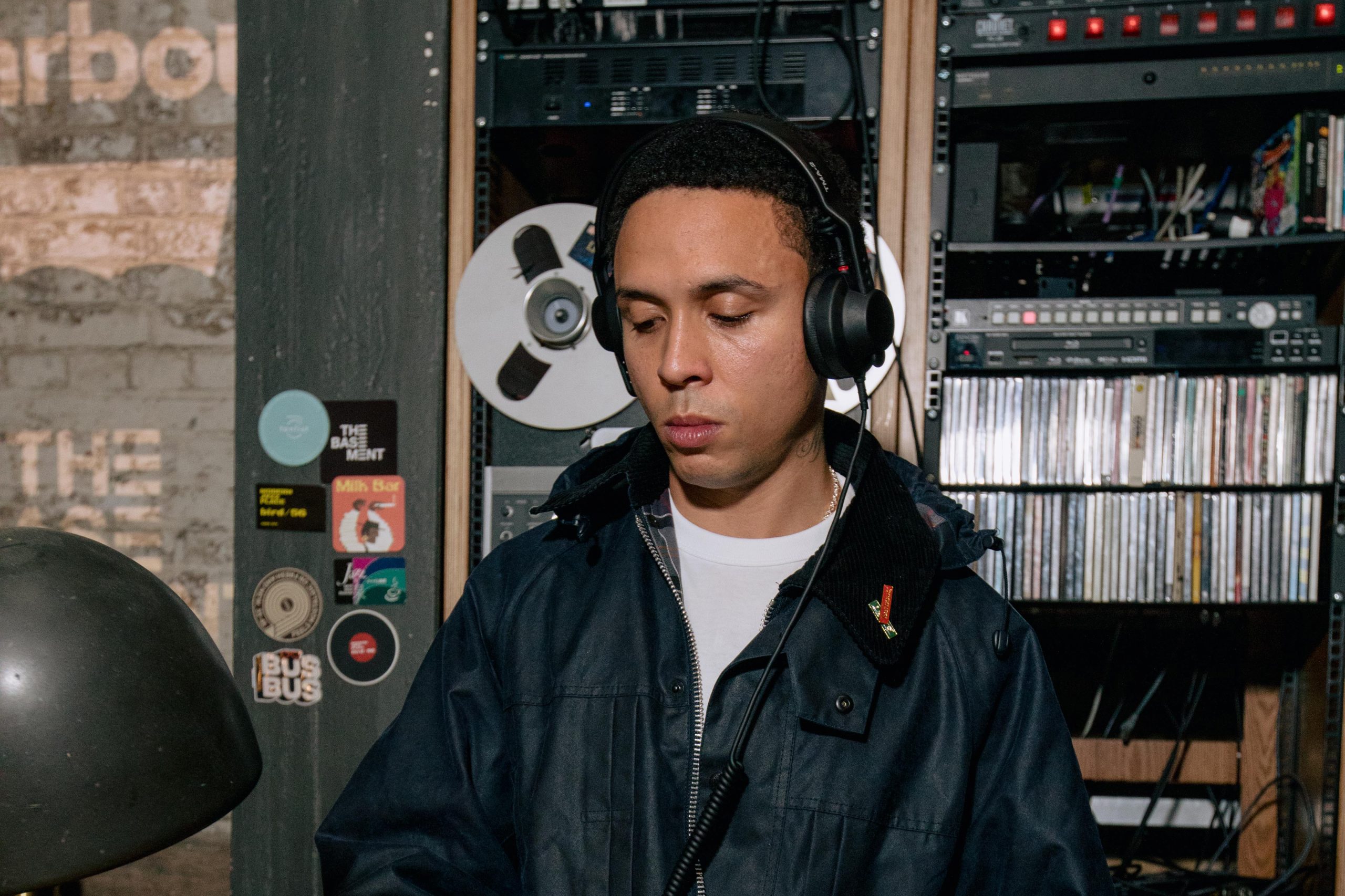
What Went Down: The Basement Presents Barbour x Levi’s® Launch Party
- Community
- Photo Series
- 4 minute read


